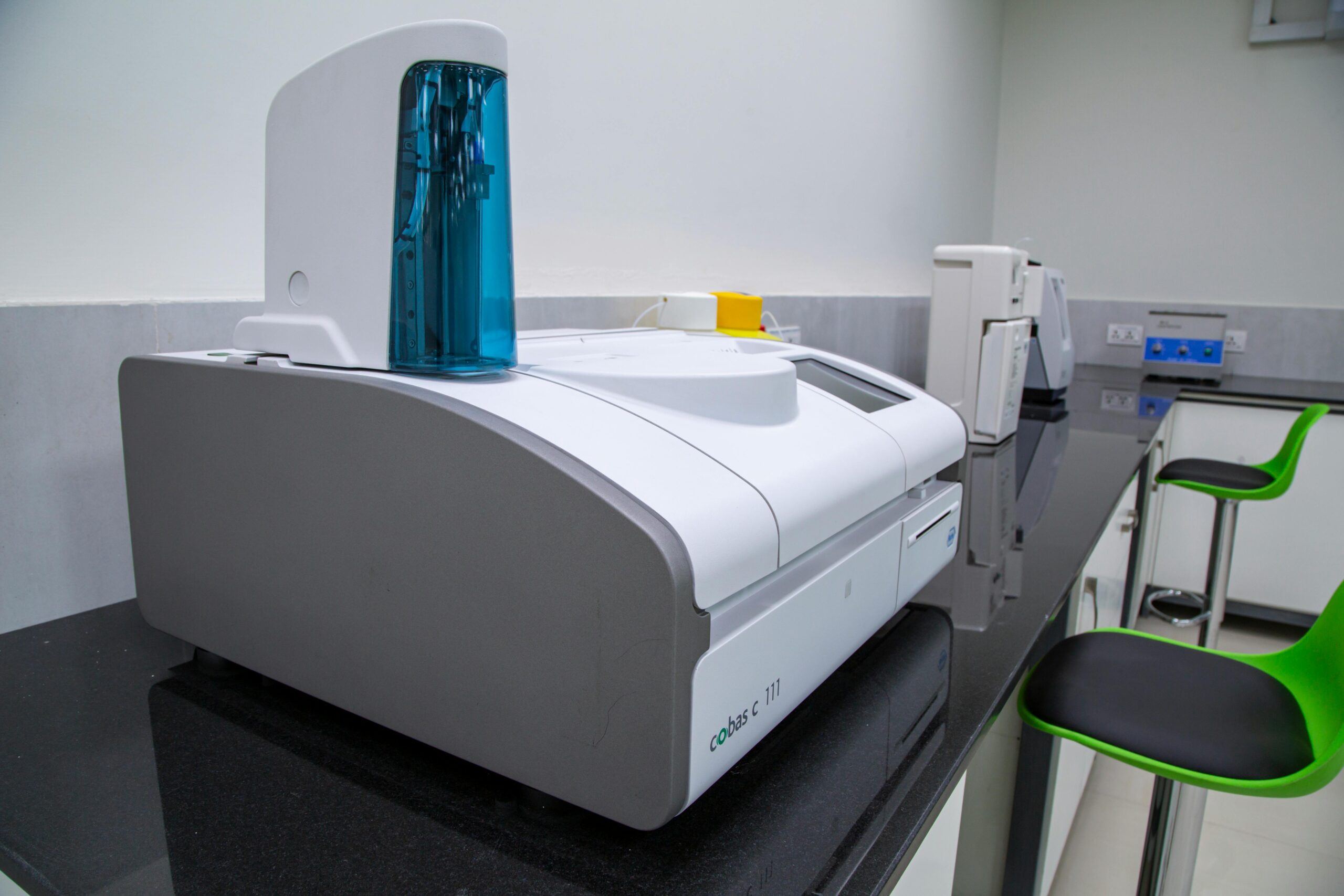Contents
- 1 The Future of Pharma: Machine Learning Applications
- 2 Intro
- 3 applications of machine learning in Drug Discovery and Development
- 4 Streamlining Clinical Trials Through Predictive Analytics
- 5 Personalizing Patient Treatment Plans
- 6 Revolutionizing Patient Diagnosis with AI
- 7 What are main applications of machine learning?
- 8 How Can Machine Learning Be Used in Healthcare for Improved Diagnosis?
- 9 What is a real life example of machine learning?
The Future of Pharma: Machine Learning Applications
Intro
In recent years, the pharmaceutical industry has been undergoing a transformation thanks to advancements in technology. One such advancement, which is revolutionizing the industry, is the use of machine learning. This powerful tool has the ability to analyze vast amounts of data and make predictions and decisions based on patterns and trends. It has numerous applications in healthcare, and its potential for use in the pharmaceutical industry is immense. With the ever-increasing amounts of data being generated in the healthcare sector, machine learning can help to identify new drug targets, improve clinical trial designs, and even predict drug side effects. This will not only speed up the drug development process but also make it more accurate and efficient. In this blog post, we will explore the various applications of machine learning in healthcare and how it is shaping the future of the pharmaceutical industry.
applications of machine learning in Drug Discovery and Development
The advent of machine learning (ML) has significantly transformed the landscape of drug discovery and development, presenting a paradigm shift in how pharmaceutical companies approach the creation of new medications. By employing ML algorithms, researchers can now sift through complex biological data at an unprecedented scale, identifying potential drug candidates much faster than traditional methods allowed. This application of ML not only accelerates the identification process but also enhances the precision in selecting compounds with a higher likelihood of success in treating specific diseases. For instance, ML models are being used to predict the therapeutic potential of new molecules by analyzing their chemical structure against vast databases of known drugs and outcomes. This enables a more targeted approach in the early stages of drug development, reducing time and cost by focusing efforts on the most promising candidates. Additionally, ML is instrumental in understanding the mechanisms of disease at a molecular level, which can lead to the discovery of novel targets for drug action. By leveraging the power of ML, the pharmaceutical industry is making significant strides in the efficient discovery and development of drugs, opening up new possibilities for treatments that were once thought to be beyond reach.
Streamlining Clinical Trials Through Predictive Analytics
Predictive analytics, powered by machine learning (ML), is transforming the landscape of clinical trials in the pharmaceutical industry. By analyzing historical data and identifying patterns, ML algorithms can predict outcomes for new clinical trials with remarkable accuracy. This application of ML enables more efficient trial designs by identifying the most promising drug candidates and patient populations likely to respond positively to a treatment. Furthermore, it can foresee potential challenges and side effects, allowing researchers to mitigate risks before they become problematic. The use of predictive analytics in clinical trials also extends to patient recruitment—a traditionally time-consuming and costly phase. ML models can sift through vast patient databases to find individuals who match the criteria for a trial, significantly speeding up the recruitment process. Additionally, predictive analytics can monitor patient adherence and predict dropouts, enabling proactive measures to ensure trial integrity. By streamlining these aspects of clinical trials, machine learning is not only accelerating the drug development timeline but also enhancing the reliability and efficacy of pharmaceutical research, paving the way for quicker, more effective treatments to reach the market.
Personalizing Patient Treatment Plans
The application of machine learning (ML) in personalizing patient treatment plans represents a significant leap towards more customized healthcare. By analyzing a wealth of data, including genetic information, medical histories, and lifestyle factors, ML algorithms can identify patterns and correlations that might go unnoticed by traditional methods. This sophisticated analysis allows healthcare providers to tailor treatments to the individual needs of patients, enhancing the effectiveness of therapies. For example, in cancer treatment, ML can help oncologists predict how different types of cancer will respond to various treatments, enabling them to choose the most effective strategy for each patient. Similarly, in chronic disease management, ML models can process continuous data streams from wearable devices to adjust treatment plans in real-time, ensuring optimal control of the condition. This shift towards personalized medicine not only has the potential to improve outcomes but also to reduce side effects by avoiding ineffective treatments. As machine learning continues to evolve, its role in devising personalized treatment plans promises to transform the patient-care paradigm, making healthcare more responsive and tailored to individual patient profiles.
Revolutionizing Patient Diagnosis with AI
Machine learning (ML), a cornerstone of modern artificial intelligence (AI), is reshaping the approach to patient diagnosis in transformative ways. Its capacity to digest and interpret complex, multi-dimensional data sets allows for the detection of diseases at earlier, more treatable stages. For instance, ML algorithms, trained on vast collections of imaging data, are now capable of identifying subtle patterns in X-rays, MRIs, and CT scans that may elude even experienced radiologists. This enhanced diagnostic capability is particularly pivotal in areas like oncology, where early detection can significantly alter patient outcomes. Moreover, ML is facilitating the integration of diverse data types, from genetic sequences to electronic health records, enabling a holistic view of patient health and the identification of disease predispositions before symptoms manifest. This level of predictive analytics not only streamlines the diagnostic process but also ushers in a new era of preventive healthcare. Through these advancements, machine learning is not merely augmenting the diagnostic toolkit but is at the forefront of a paradigm shift towards more proactive, predictive, and personalized healthcare delivery.
What are main applications of machine learning?
Machine learning is revolutionizing the way we approach environmental conservation, offering innovative solutions to some of the most pressing ecological challenges. By harnessing the power of algorithms and data analysis, researchers and conservationists are now able to predict climate change impacts with greater accuracy, track wildlife populations in real time, and monitor deforestation and illegal logging activities more effectively. For instance, machine learning models are being used to analyze satellite imagery to detect changes in land use, enabling proactive measures against habitat destruction. Additionally, these technologies assist in identifying patterns in the migration of animals, aiding in the creation of better conservation strategies and protected areas. Another critical application is in the analysis of ocean temperatures and pollution levels, which are crucial for the preservation of marine biodiversity. Machine learning’s predictive capabilities also extend to forecasting natural disasters, such as forest fires and floods, allowing for timely interventions that can save both human lives and natural habitats. Overall, the integration of machine learning into environmental conservation efforts is a game-changer, providing the tools needed to address ecological issues more efficiently and sustainably.
How Can Machine Learning Be Used in Healthcare for Improved Diagnosis?
In exploring how machine learning can be used in healthcare, it’s crucial to address the challenges and ethical considerations that accompany its integration. The deployment of machine learning in healthcare settings must navigate complex privacy laws, such as HIPAA in the United States, to ensure patient data confidentiality. Ensuring the security of sensitive health information against breaches becomes paramount as machine learning systems often require vast datasets for training and analysis. Another significant ethical consideration is the potential for bias in machine learning algorithms. These systems learn from historical data, which may contain biases against certain demographics, leading to unequal healthcare outcomes. It’s essential to continuously audit and adjust these algorithms to mitigate such biases, ensuring equitable healthcare solutions for all patients. Moreover, the reliance on machine learning for diagnosis and treatment decisions raises questions about accountability and transparency. Establishing clear guidelines on the interpretability of machine learning decisions and defining the roles and responsibilities of healthcare professionals in the decision-making process are necessary steps to foster trust among patients and practitioners. Navigating these challenges and ethical considerations is key to unlocking the full potential of machine learning in healthcare, promising improved diagnosis and personalized treatment while upholding the highest standards of patient care and data integrity.
What is a real life example of machine learning?
One compelling real-life example of machine learning that vividly illustrates its profound impact on society is the development and deployment of personalized recommendation systems by streaming services and online retailers. These systems analyze vast amounts of data on individual user preferences and behaviors to suggest products, movies, or songs that users are likely to enjoy. This application of machine learning has not only transformed the way people discover new content and products but has also significantly influenced consumption patterns and the entertainment and retail industries at large. Beyond personalization, machine learning algorithms have been pivotal in improving healthcare outcomes through predictive analytics, enabling early detection of diseases from medical images, and optimizing treatment plans. Furthermore, in the realm of public safety and environmental conservation, machine learning models are being employed to forecast natural disasters, track wildlife populations, and monitor climate change effects, demonstrating a wide-ranging impact on society. These examples underscore the transformative power of machine learning, highlighting its potential to enhance our daily lives, streamline operations across various sectors, and address critical global challenges.


